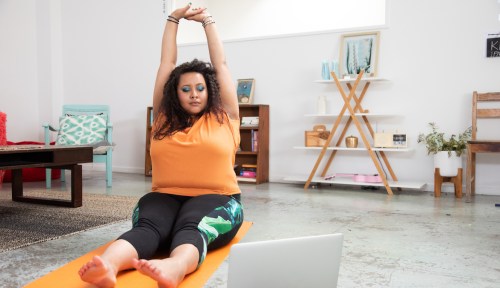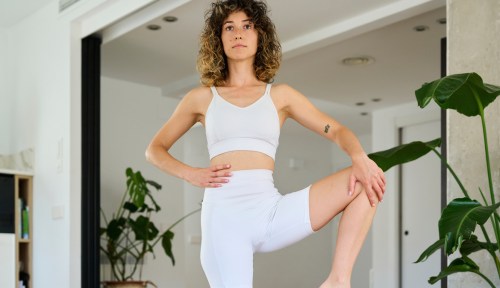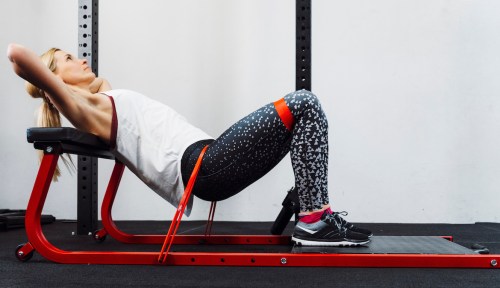Lil’ Jon and the Ying Yang Twins probably didn’t have fitness in mind when they sang Get Low, but people all over TikTok are doing just that in a new “fitness test.”
Experts in This Article
physical therapist based in Southern California
The move, going viral on TikTok, challenges users to lower themselves down with their legs crossed into a seated position, shift forward onto their knees, rock backward into a deep squat, and then stand—all without using their hands.
“This is a great mobility challenge, but not so much a ‘fitness test’ per se,” Dr. VanDenMeerendonk says. “Being able to stand to sit to stand from the floor without the use of your hands tells me as a physical therapist that this person has great lower body mobility, body control, core strength, and balance.”
Lower body mobility is a great thing to cultivate in general, and especially if you’re a runner, want to reduce lower back pain, or are trying to move more freely and less creakily around the world. Body control, core strength, and balance can also help prevent injury—and, you know, feel better in daily life.
Dr. VanDenMeerendonk points out that there is actually a test that’s similar to this “fitness test” that’s established by a 2014 study as a predictor of a person’s longevity. It’s simpler, but it’s even more challenging. The “sit and rise from the floor test” challenges a person to lower themselves to the floor in a cross-legged position, and then come straight back to standing without the use of their hands—or knees. It’s scored out of 10, and for every hand or knee you put down, a point gets deducted, while wobbles will cost you half of a point. In about a six-year follow-up period, there were more deaths among people who scored lower on the test.
“This test did have its limitations, but sampled about 2000 adults and the results were statistically significant,” Dr. VanDenMeerendonk says.
So if you want to challenge yourself to get low (and get back up) with ease, that’s not such a bad idea. If you find yourself struggling, Dr. VanDenMeerendonk suggests working on hip, ankle, and thoracic (upper spine) mobility exercises, as well as “focusing on core strengthening and spinal stability exercises.”
But remember that being able to do the viral “fitness test” doesn’t actually say much about your fitness, so if you can’t do it, don’t stress.
Sign Up for Our Daily Newsletter
Get all the latest in wellness, trends, food, fitness, beauty, and more delivered right to your inbox.
Got it, you've been added to our email list.











